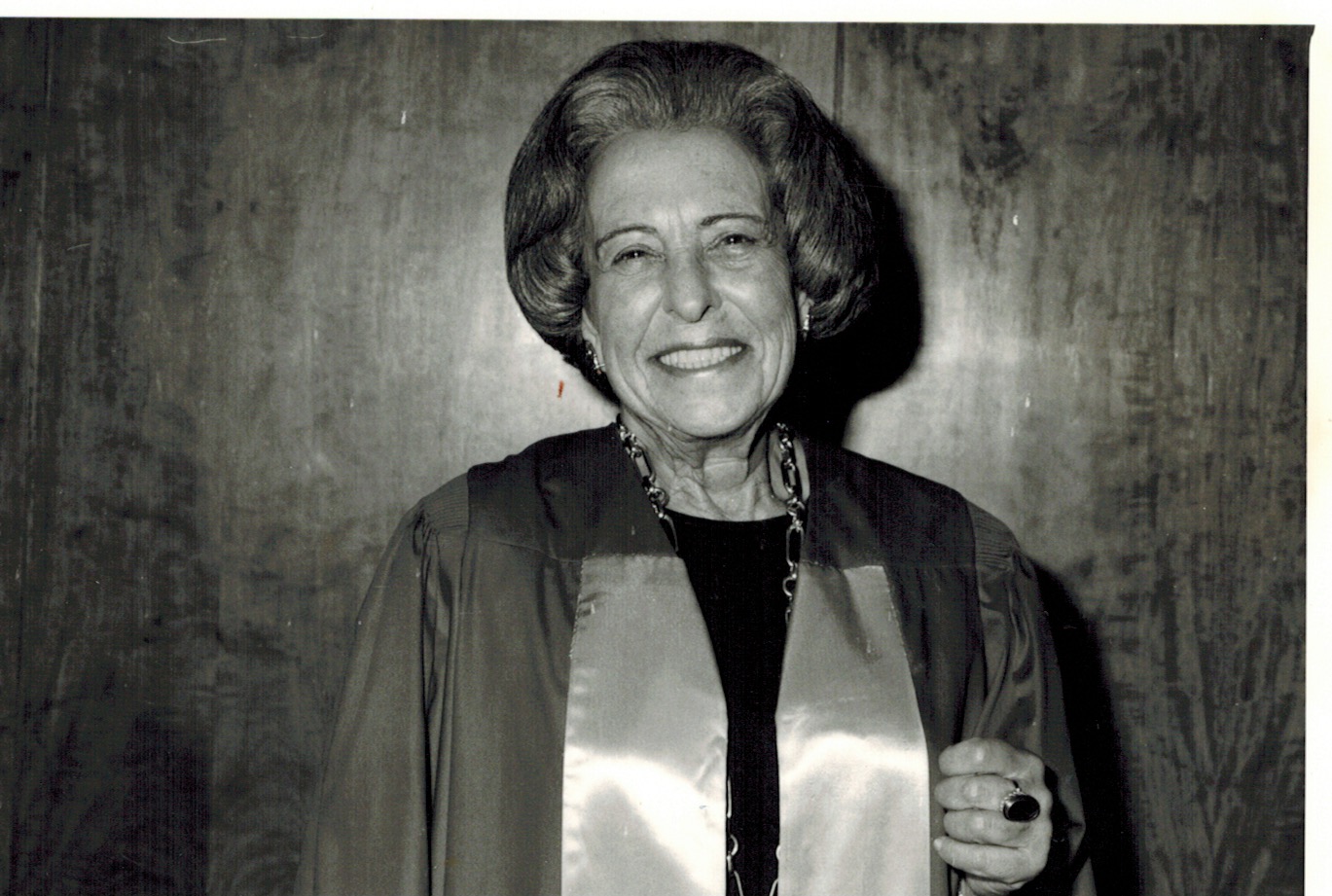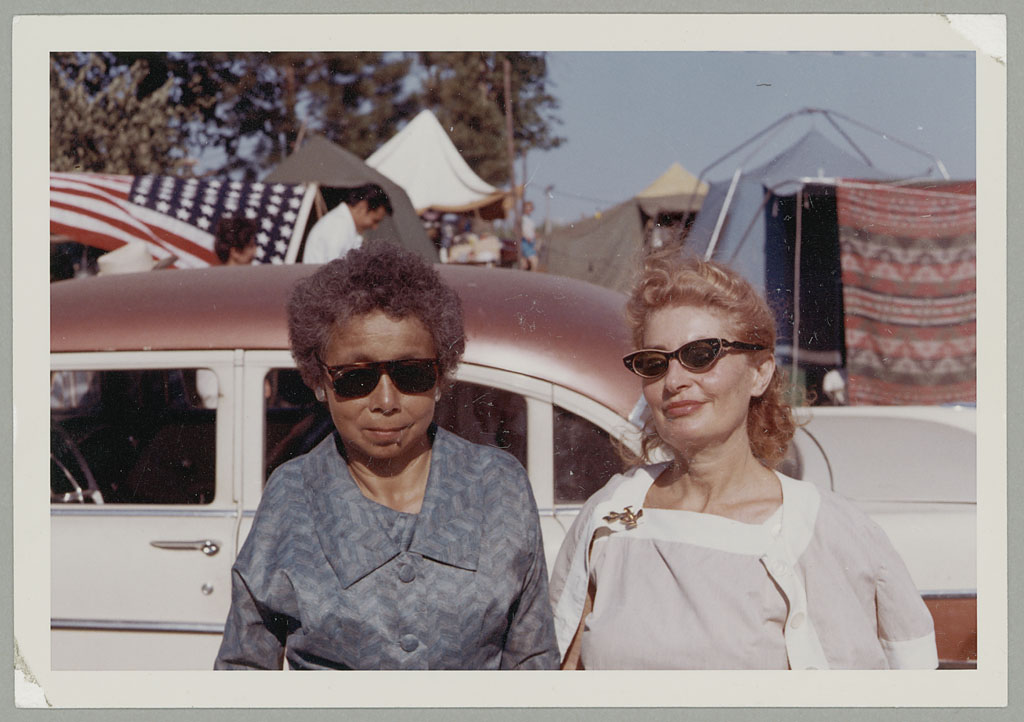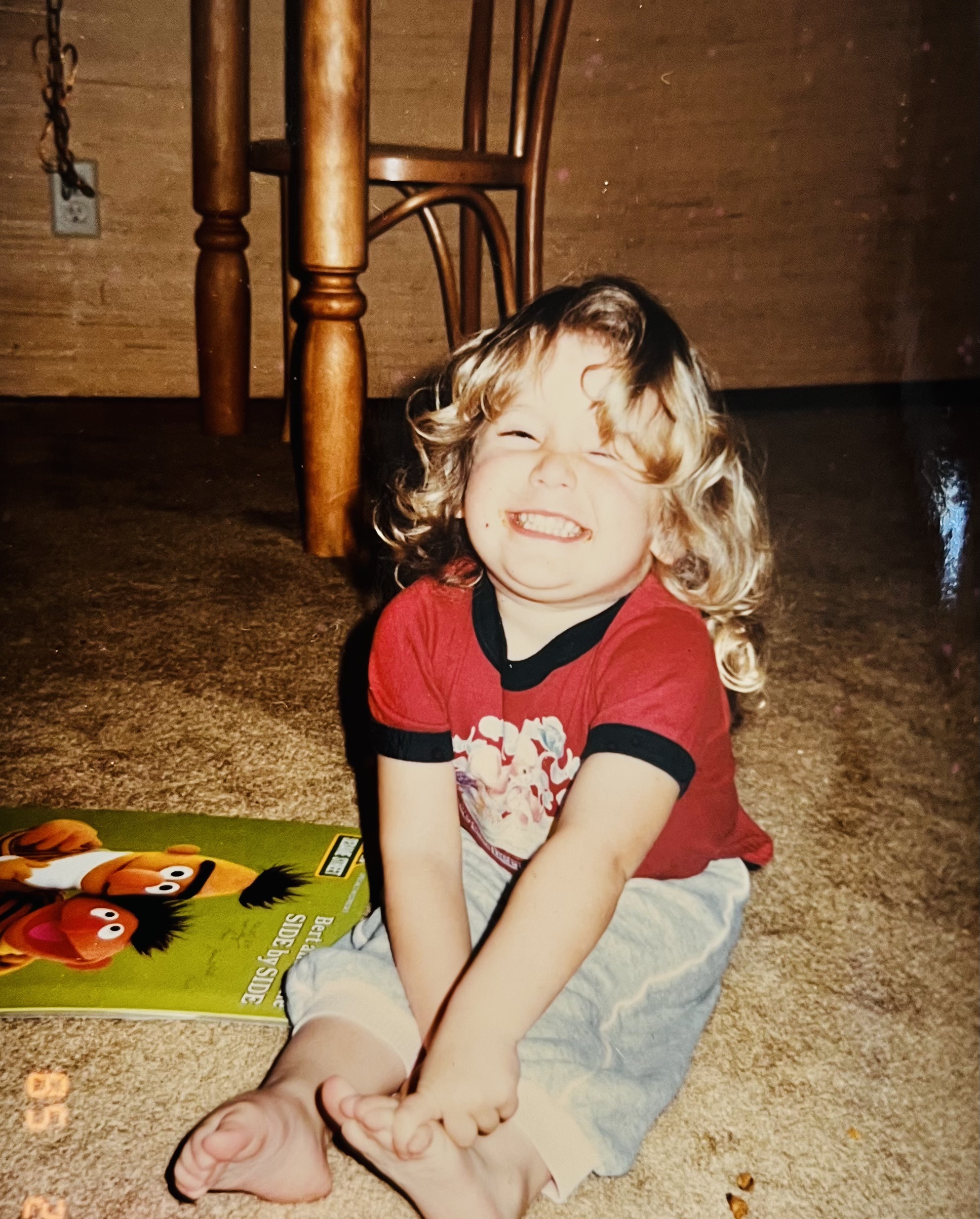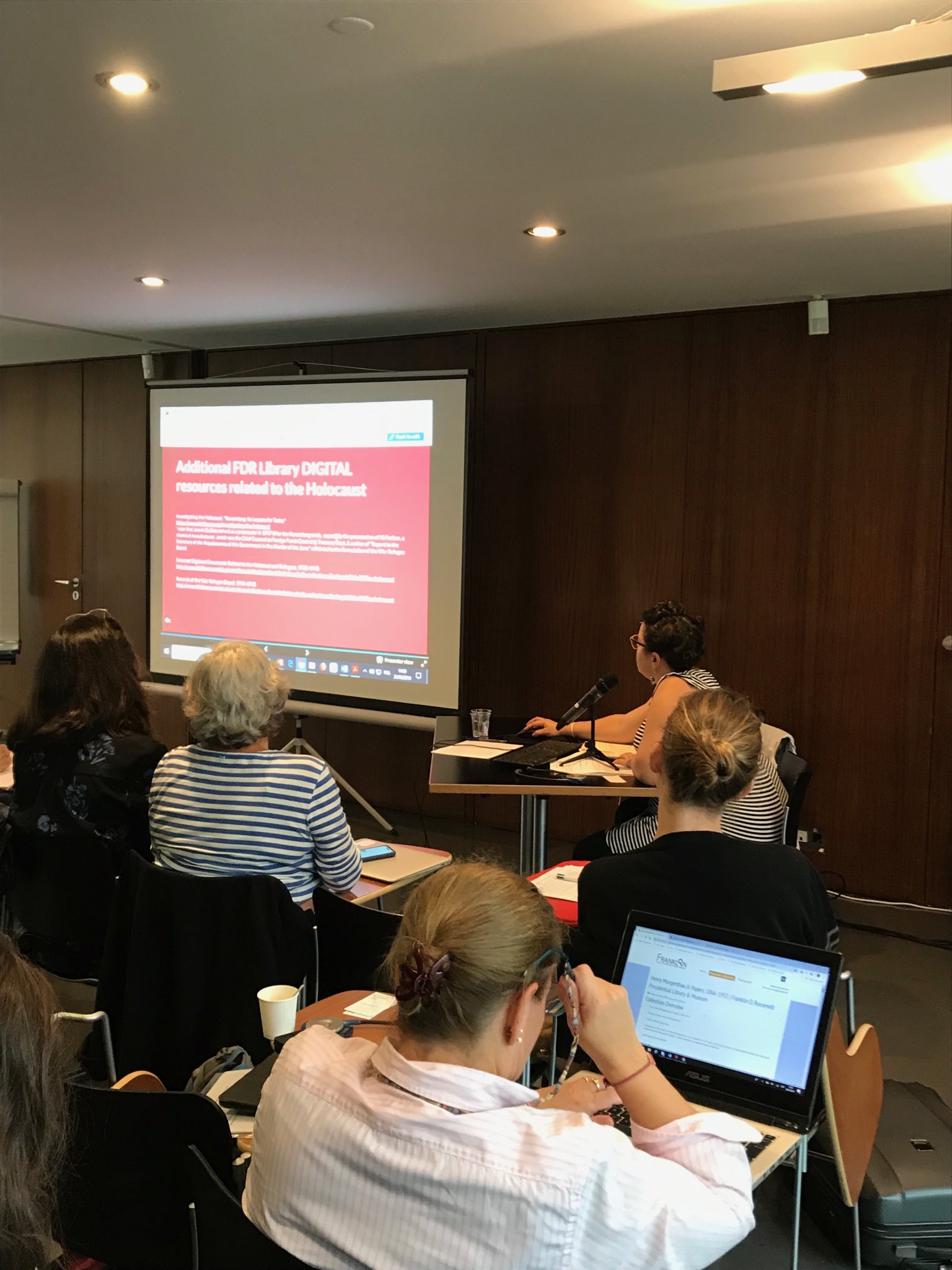
I am currently at work on a multi-media book project titled, Archives and Autoethnography: Jewish women, Black women and intersubjective anthropology. Though feminist anthropologists write about their relationships with their participants, known as “reflexivity,” this sort of approach is almost completely absent from historical and biographical accounts. Archives and Autoethnography operates from the conviction that nonhuman things – historical materials and the ancestors who made them – exert influence in knowledge production through their relationships with human researchers (Bennett, Hodder, Latour). It explores what happens when researchers become more conscious of their unconscious reactions to archival materials and ethnographic objects. It articulates the necessity for anthropologists in the archives and historians to reflect on our intersubjective experiences as we write reflexive historical ethnographies and women’s histories.



To achieve this end, this book uses comparative psychobiography and autoethnography of the archives to explore my conflicted relationships with two other Jewish women anthropologists, one of Eastern European descent, Ruth Landes (1908–1991), and one of Central European descent, Ellen Hellmann (1908-1982). It is organized into three acts, each focusing on a central life-cycle theme: (I.) fathers, mothers, and daughters, (II.) sex and relationships and (III.) social death and suicide. Each “act” revolves around significant memories in my life that were triggered by my work with the archival materials of these two women including correspondence, photographs, and artifacts. It includes polyvocal dialogues, poems, and prose (inspired by Amia Lieblich), that shift in narrative point of view between the three main characters (Ellen, Ruth and me).
From September 2019-December 2021, I was the Morgenthau Scholar-in-Residence at the FDR Library and Museum in Hyde Park, NY. In this role, I developed digital humanities tools to raise awareness about the Holocaust related collections at the library, focusing on the under-explored roles of women staff in the rescue effort. I wrote blogs for the FDR library such as this one, about Henrietta Stein Klotz, secretary to Henry Morgenthau Jr. Two different chapters I wrote about Henrietta Klotz came out in 2022-2023 in Jewish Studies in the Digital Age #DHJewish and in New Microhistorical Approaches to an Integrated History of the Holocaust, both published by De Gruyter. In the first chapter, I explore Klotz’s influence on the Secretary of the Treasury’s positions in response to the Holocaust and his post-war fundraising for the State of Israel. Though women in secretarial positions are not typically depicted as wielding political power, nodegoat, a web-based, data management, network analysis, and visualization environment, reveals how women in secretarial roles, like Henrietta Klotz, exerted political influence through their ethnic, religious, and interpersonal networks. A handwritten letter from Morgenthau Jr. to Mrs. Klotz, after their tenure at Treasury ended in 1945, is the centerpiece of the second chapter, a “microhistory.” In this letter, he called her the “watchdog of the Secretary of the Treasury” and proclaimed: “whatever credit I deserve” for helping to save Jewish refugees, “I want to share it equally with you.”

I earned my PhD in Global and Socio-cultural Studies (GSS) at Florida International University in April 2018. I also earned an M.A. in African and African Diaspora Studies as part of the combined program with GSS in May 2015. I received a Dissertation Year Fellowship from the FIU Graduate School for the 2017-2018 school year. My dissertation “Jewish women’s transracial epistemological networks: Representations of Black women in the African diaspora, 1930-1980” used historical social network analysis to consider how Jewish women social scientists’ networks across racial, national, and disciplinary boundaries impacted their theorizing about black women’s sexualities in Brazil, the UK, the Caribbean, South Africa and the U.S.

I received a series of Ruth Landes Memorial Fund grants through The Reed Foundation in order to complete archival data collection in New York City, Los Angeles, Washington D.C., and Johannesburg, South Africa with the papers of Jewish social scientists: Vera D. Rubin, Hilda Kuper, Ruth Landes, and Ellen Hellmann.

Previously, I received a Foreign Language and Area Studies fellowship through the Latin American and Caribbean Center at FIU, which supported fieldwork in Brazil. I investigated the contemporary impact of the 1938-1939 research of Jewish American anthropologist Ruth Landes. She argued that Candomblé, an Afro-Brazilian, Yoruba-based, spirit-possession religion, was matriarchal. I wrote my M.A. exit paper on this topic: “Placing Ruth Landes within Afro-Brazilian Studies: The Debates about ‘Black Matriarchy’ 1930-1950 and Contemporary Critiques,” arguing that Ruth Landes’ specific Jewish background influenced her arguments and position within these debates as well as her treatment by men (some Jewish) within the disciplines of anthropology and sociology. I published a peer reviewed article based on this exit paper in History and Anthropology in 2019.
From 2016-2019, I served as co-chair for the Jewish caucus within the National Women’s Studies Association (NWSA); in this role I organized five panels for the 2018 conference emphasizing the experiences of Jewish women of color. In 2019, I presented about the transracial and transnational collaboration between Fatima Meer and Hilda Kuper (see “All projects”). In 2017 and 2019 I created and led a feminist Shabbat service at the NWSA conference.

From 2011-2013 I worked as a New York City Teaching Fellow (a public high school teacher) and completed a M.S. in Teaching Urban Adolescents with Disabilities at Long Island University in Brooklyn. During my master’s program, I completed several qualitative research studies that investigated how NYC public school environments perpetuate race and gender oppression and restrict teachers’ abilities to create spaces for student voice/agency.
Earlier in my time in New York, I worked as a Jewish educator, Kaplan private tutor and adjunct instructor in Sociology and Psychology. Before moving to New York, I completed an M.A. in Women’s Studies from San Diego State (graduated May 2008) and worked as a Graduate Teaching Associate. In this position I designed and led my own introductory Women’s Studies course. My master’s thesis focused on the “borderland” experiences of Afro-Jewish women in Brazil.
From 2018 I have served as an adjunct lecturer at Florida International University in the departments of Global and Socio-cultural studies, African and African Diaspora Studies, Women’s and Gender Studies, History and Education. I was a clinical supervisor for student teaching interns in the Social Studies Education program at FIU. I am currently advising a MA student project about the influence of Yoruba orixás (orishas) on the self-perceptions of African American women.

This work is licensed under a Creative Commons Attribution-NonCommercial-NoDerivatives 4.0 International License.
- Photo shared with me by Dame Ruth Runciman, DBE ↩︎
- Louise Nocktonick was one of Ruth Landes’ informants during her 1935 and 1936 fieldwork among the Prairie Potawatomi in Mayetta, Kansas, See landes_photo_ruth_landes_15, Box 63, Ruth Landes Papers, National Anthropological Archives, Smithsonian Institution. Handwritten on verso of this photograph by Landes: “30 yrs later. July 1964. (Potawatomi) Pow-wow on Fair Grounds on Pot. reservation, Mayetta, Kansas. taken by Jas A. Clifton, Anthro Dept, Univ. of Kans. Louise Nocktonick, Ruth Landes (great hair). IV” ↩︎

Hi Abby,
I am a documentary producer based in New York City. My colleague Peter Bull and I (bios below) are developing a documentary about Anna M. Rosenberg that draws from Christopher C. Gorham’s new book, The Confidante: The Untold Story of the Woman Who Helped Win WWII and Shape Modern America. We’ve been to the Schlesinger Library and the National Archives to begin photo and film research, but we have not yet been to the FDR Library. I was very impressed with the work you did on Henrietta Stein Klotz and her influence on Henry Morganthau Jr.’s response to the Jewish refugee crisis during WWII.
At that same time Anna Rosenberg, a Jewish immigrant, was meeting regularly with FDR and advising on labor issues. I wondered whether you might have suggestions on how we might use the Library to research whether Anna Rosenberg weighed in at all on the topic of Jewish refugees as well. Any other tips on tackling the archives would be very much appreciated.
We look forward to hearing from you.
With best regards,
Gail
Gail Ablow, Director / Producer
Gail Ablow is a writer, director, and producer with a long history of producing documentaries, long-form television, and multimedia. Her short documentary, American Beat: Cops and Refugees Join Forces in Boise, was featured in the Justice Film Festival and broadcast on PBS World in 2018. It won a 2018 NW Regional Emmy. She helped launch the PBS series, Family Pictures USA in 2019. For many years Gail was a staff writer, long-form, and documentary producer for Bill Moyers, earning 3 Emmy nominations for On Our Own Terms: Moyers on Dying in America, LBJ’s Path to War, and an interview with Rep. Henry Waxman. At ABC News, her documentary work was recognized with a Cine Golden Eagle Award for The Century: America’s Time, Shell Shock, and, working with director Peter Bull, an Edward R. Murrow Award for Turning Point: When Children Accuse, Who to Believe? Gail earned her master’s degree from Columbia University’s Graduate School of Journalism and her undergraduate degree from Harvard College. She was a John S. Knight Fellow at Stanford University, and a Carnegie Visiting Media Fellow.
Peter Bull, Director / Producer
Peter Bull is a documentary filmmaker and a four-time Emmy-winning writer/producer/director of documentaries for public, network and cable television. He helped launch the PBS weekly public affairs program NOW with Bill Moyers as senior producer, a role he also played on the CBS series WHISTLEBLOWER and on the prizewinning ABC News series, HOPKINS 24/7. Over a long career, he has specialized in producing and directing compelling nonfiction environmental, historical, and political narratives. He wrote and directed a 90-minute feature documentary film, DIRTY BUSINESS: ‘Clean Coal’ and the Battle for Our Energy Future in collaboration with the Center for Investigative Reporting (CIR), which premiered at the Full Frame documentary festival. Also, in collaboration with CIR, he wrote and produced Hot Politics for the PBS series FRONTLINE, about the politics of climate change. Other credits include directing Earth, episode four of the Netflix series COOKED with author Michael Pollan, and he wrote and produced Redefining War, the concluding hour of the PBS series WOMEN, WAR & PEACE. Peter earned his MFA at the Visual Arts Dept. at U.C. San Diego and his BA at Yale. In addition to his four News & Documentary Emmys, his work has been recognized by DuPont/Columbia, Edward R. Murrow, Overseas Press Club, Cine Golden Eagle, and Christopher Awards, among others.
LikeLike
Gail- I recommend reaching out to the archivists at the FDR library because they will help you search through the collections and they have wide knowledge about what is and isn’t in their archives.
LikeLike